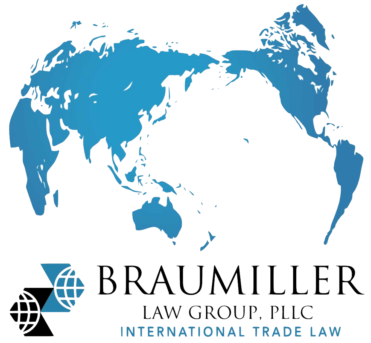By Jennifer Horvath, Senior Associate Attorney, Braumiller Law Group
In 2010, Congress passed the Dodd-Frank Wall Street Reform and Consumer Protection Act (“Dodd-Frank”). In passing Dodd-Frank, Congress used Section 1502 to amend the Securities and Exchange Act of 1934. With Section 1502, Congress directed the Securities and Exchange Commission (“SEC”) to implement new regulations to reduce the violence stemming from the mining of selected “conflict minerals” in Africa. The SEC defines conflict minerals as tantalum, tin, gold and tungsten. Under these regulations, publicly traded companies are required to submit an annual conflict minerals disclosure report by filing paperwork called a “Form SD” to the SEC. The Form SD requires companies to determine if conflict minerals are necessary to the functionality or production of a product that they manufacture, or contract to be manufactured. To make this determination, public companies must conduct extensive investigations of their production processes.
Even if the company’s internal inquiry concludes that they do not employ conflict minerals in production, it still must report their findings and investigation process to the SEC in their Form SD disclosure. By contrast, if the company does identify conflict minerals within its production processes, the company is required to submit a special report as an exhibit in its Form SD disclosure, to have that report independently audited by a third party, and to determine to the exact location of the mine yielding the conflict minerals. Whether conflict minerals are found or not, the company must also disclose its findings publicly on its website.
However, recently, a combination of court opinions, regulatory reversals, and legislative proposals have joined to change the outlook for conflict minerals compliance under Section 1502 of Dodd-Frank. More specifically, the first breakdown in the SEC’s conflict mineral regulations under Section 1502 came in 2014 when the United States Court of Appeals for the District of Columbia found that the SEC’s conflict minerals disclosure requirements created unconstitutional compelled commercial speech, violating the First Amendment. In reaching its decision, the Court of Appeals did not explore whether the unconstitutional disclosure requirements under the Conflict Minerals Rule were embedded within Dodd-Frank itself, or were part of the SEC’s implementation of its mandate under Dodd-Frank.
The second change to Section 1502’s conflict mineral regulation came from the SEC itself. On April 7, 2017, in response to the D.C. Court of Appeals decision finding the SEC’s regulations unconstitutional, the SEC issued a public statement from Acting Chairman Michael Piwowar. Piwowar’s statement attempted to account for the implications of the Court of Appeals’ finding that the disclosure regulations, as formulated, were unconstitutional. Chairman Piwowar wrote: “The primary function of the extensive and costly requirements for due diligence on the source and chain of custody of conflict minerals set forth in paragraph (c) of Item 1.01 of Form SD is to enable companies to make the disclosure found to be unconstitutional. In light of the foregoing regulatory uncertainties, until these issues are resolved, it is difficult to conceive of a circumstance that would counsel in favor of enforcing Item 1.01(c) of Form SD.” As a result of Chairman Piwowar’s directive, as y, the SEC appears to no longer be enforcing this provision of Dodd-Frank.
Ultimately, the SEC’s suspension of their enforcement of the disclosure requirements under Section 1502 may be irrelevant as Congress has chosen to step into the debate with new legislation of its own. On May 4, 2017, the House Financial Services Committee passed the Financial Choice Act (“The Act”). The Act repeals Section 1502 of Dodd-Frank altogether. On June 8, 2017, the Act passed the entire House of Representatives and was sent to the Senate for consideration where it currently sits. However, while the future of Section 1502 may sit in a state of flux, firms must continue to make decisions about their current compliance strategy. Moreover, though the SEC has indefinitely suspended its enforcement of these disclosure requirements, this decision is reversible. The SEC is collecting public feedback on possible avenues forward. Thus, firms affected by the Conflict Minerals Rule should continue to closely monitor legislative developments as well as any newly released guidance issued by the SEC.



























